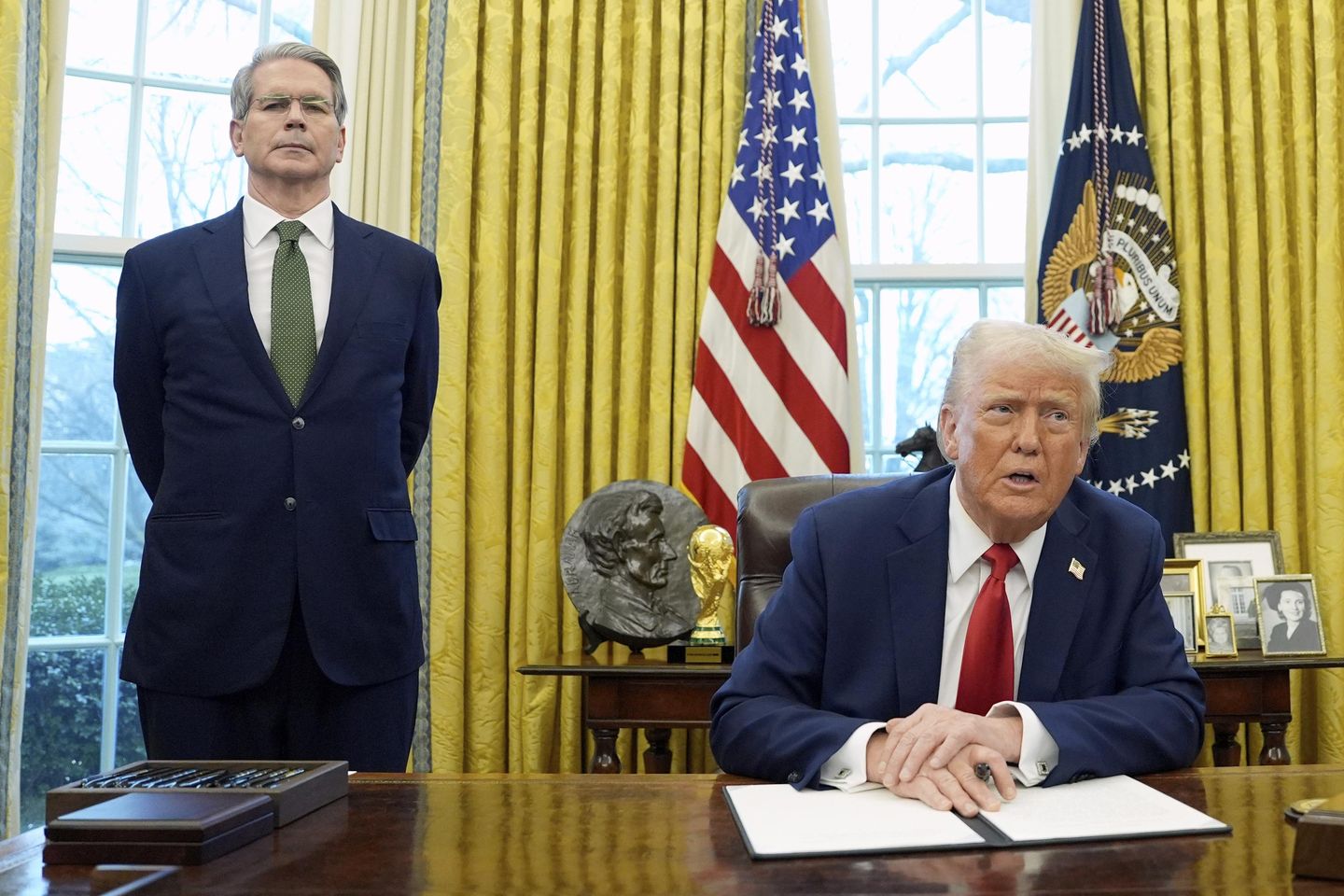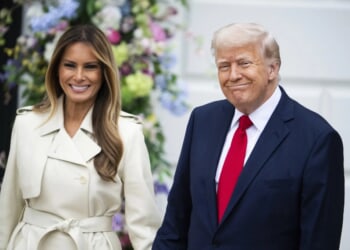
Treasury Secretary Scott Bessent expressed optimism that the United States and China could reach a significant trade agreement if China rebalances its economy toward domestic consumption rather than exporting cheap goods globally. Speaking at the Institute of International Finance, Mr. Bessent emphasized this as “an incredible opportunity” for cooperation.
President Trump confirmed that negotiations with China are “active” as both countries work toward a “fair deal” to reduce the current retaliatory tariffs, which exceed 100% on both sides. The president indicated he has a good relationship with President Xi and hopes for a deal, though he’s prepared to maintain pressure if necessary.
China’s Foreign Ministry responded that its “doors are open” for talks but criticized the U.S. approach, stating that “threatening and blackmailing China” while seeking dialogue won’t work. They called for negotiations based on “equality, respect and mutual benefit.”
An administration official clarified that any reduction in U.S. tariffs would not be unilateral but would be part of mutual negotiations. This more conciliatory tone toward China positively affected Wall Street, with the Dow Jones, S&P 500, and Nasdaq all closing up after earlier sell-offs.
Mr. Bessent emphasized that the “status quo of large and persistent imbalances is not sustainable” and that China needs to transition away from exporting cheaply made goods that undercut manufacturing elsewhere. He stated, “America First does not mean American alone” but rather calls for “deeper collaboration and mutual respect among trade partners.”
Meanwhile, legal challenges to Mr. Trump’s tariff policies continue. New York Attorney General Letitia James led twelve Democrat-run states in filing a lawsuit against the administration, claiming Mr. Trump’s tariffs represent an illegal circumvention of Congress. The president maintains he has authority under a 1977 law and argues the tariffs will encourage companies to operate in America and create revenue.
Other nations like Japan and India are working on deals to reduce trade barriers. Vice President J.D. Vance, while in India, stated that progress is being made “across the board” as the administration attempts to correct what they view as a “fundamentally imbalanced” trade system.
President Trump previously indicated that tariffs against China would come down “substantially” after negotiations, though they “won’t be zero,” expressing hope that the two nations can “live together very happily.”
Read more: Bessent, Trump talk up trade deal with China, cheering markets
This article is written with the assistance of generative artificial intelligence based solely on Washington Times original reporting and wire services. For more information, please read our AI policy or contact Ann Wog, Managing Editor for Digital, at awog@washingtontimes.com
The Washington Times AI Ethics Newsroom Committee can be reached at aispotlight@washingtontimes.com.


![NYC Tourist Helicopter Falls into Hudson River, Siemens Executive and Family Among Those Killed [WATCH]](https://www.right2024.com/wp-content/uploads/2025/04/NYC-Tourist-Helicopter-Falls-into-Hudson-River-Siemens-Executive-and-350x250.jpg)






![Green Day’s Cringe Trump Diss Ends in Fire and Evacuation [WATCH]](https://www.right2024.com/wp-content/uploads/2025/04/Green-Days-Cringe-Trump-Diss-Ends-in-Fire-and-Evacuation-350x250.jpg)
![Red Sox Fan Makes the ‘Catch of the Day’ with Unconventional ‘Glove’ [WATCH]](https://www.right2024.com/wp-content/uploads/2025/04/Red-Sox-Fan-Makes-the-‘Catch-of-the-Day-with-350x250.jpg)
![Bikini Clad Spring Breakers Prove Our Education System is Failing Students [WATCH]](https://www.right2024.com/wp-content/uploads/2025/03/Bikini-Clad-Spring-Breakers-Prove-Our-Education-System-is-Failing-350x250.jpg)





